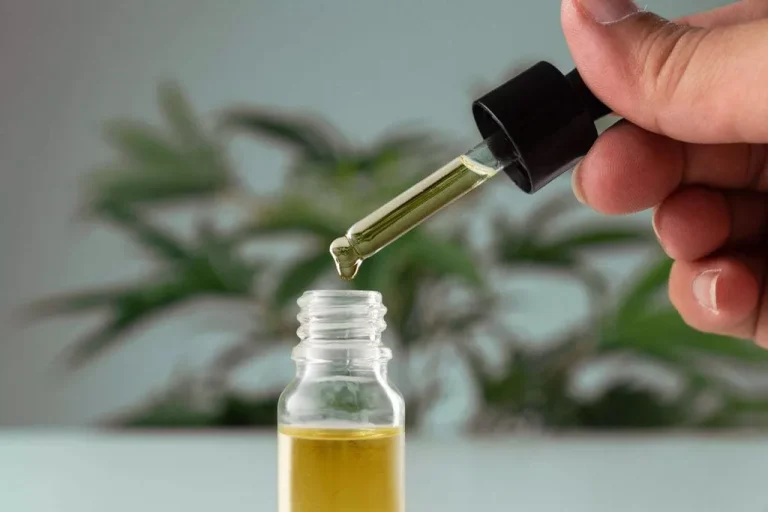
Moderated drinking could give you the space to address those issues you’ve been pushing aside. First, let’s dive into the difference between abstinence (AKA sobriety) and moderation. Abstinence may not be a realistic solution with some addictions, such as eating and in some cases sexual addictions. Even in these instances commitment to moderation is an important factor for success.
Alcohol Moderation Management Programs
And now there is even a treatment center focused on moderation as a treatment goal. The US Department of Health & Human Services recommends no mo than 2 drinks per day for men and only 1 drink per day for women. If drinking more on certain days than others, then it’s recommended that men drink no more than 14 drinks in a week for men and 7 drinks in a week for women. Of course, these amounts are “standard” drinks, meaning that we’re talking about the amount of alcohol in the beverage rather than the drink itself.
How Do You Practice Controlled Drinking?
It is important to note that moderation techniques work best with those concerned with their drinking habits but who are not diagnosed with an alcohol addiction. Abstinence is not the only solution for recovering from alcohol use disorders, but it is one of the most studied and successful methods for recovering from alcohol use disorders. While the pandemic seems to have triggered substantial increases in alcohol consumption, and in alcohol abuse, this is true on a macro level. For some people, the pandemic created more opportunities for reducing drinking. More time at home may have contributed to less peer pressure to drink, less time in a “wet” culture, and lifestyle changes that might support a shift towards moderation. The journey to changing your relationship with alcohol is about progress, not perfection.
Replace Alcohol

Setting up personal guidelines and expectations—and tracking results—can make maintaining moderation easier. You will keep track of what was accomplished and what still needs work. Drinking is often a coping strategy subconsciously used to avoid having to deal with uncomfortable or painful issues.
- If quitting is your ultimate goal, starting with moderation may help you achieve it.
- Sometimes, people without related drug addictions might inquire about naltrexone, a drug that can help block the pleasurable effects of alcohol and help reduce alcohol cravings.
- And now there is even a treatment center focused on moderation as a treatment goal.
- For some people, certain hereditary, familial, environmental, and relationship factors prevent them from achieving health.
- Maintaining moderation in drinking means starting out with a specific goal.
Sex was included only in the self-esteem and quality of life/functioning models, and primary substance used was included only in the psychological distress model. Controlled drinking, often advocated as a moderation approach for people with alcohol use disorders, can be highly problematic and unsuitable for those who truly suffer from alcohol addiction. Alcoholism is characterised by a loss of control over one’s drinking behaviour and an inability to consistently limit consumption. Attempting controlled drinking in such cases often reinforces the addictive cycle rather than breaking it. People with alcohol use disorder who try to quit drinking often ask whether they have to stop consuming alcohol forever—or if they can learn to drink in moderation.

Still, if you want the easiest way to minimize the problems in your life, go for abstinence eventually. It actually is much easier to just give it up entirely than punish yourself trying to moderate or control your addictive behavior. Studies have shown that regardless of the method employed to become sober, the number one factor for sobriety success is a permanent commitment to discontinue use permanently; a commitment to abstinence. The association between greater time since problem resolution and lower risk substance use status possibly reflects an aging out of substance use (Heyman, 2010), or some individuals struggling to moderate their use and eventually gravitating toward abstinence.
Reflect on the alcohol use disorder criteria
Combined with a consistent and aggressive disputing of urges to use, most find their messages to use either decrease to nothing or become infrequent and easily handled. It may not be easy to see now, but your life can be restored to where you are in control, your addiction and the urges will recede to an unpleasant memory. You don’t have to live in a https://ecosoberhouse.com/ constant battle with these painful, nagging urges. Studies have shown that in some cultures there are a small percentage of people who can return to moderate drinking. Attempts at moderation may not be worth the effort or the risk when considering the consequences. If your own life has been a mess because of your addictive behavior, why chance it?
There are no requirements for changing your relationship with alcohol and seeking treatment. Research indicates that while the likelihood of avoiding heavy alcohol consumption is highest in abstinence-focused individuals, those with moderation objectives were also able to reduce their alcohol use. An individual’s ability to avoid excessive drinking is also influenced by other factors such as past alcohol consumption, as reflected by an alcohol use disorder diagnosis. Depending on the number of criteria met, an individual will be diagnosed with mild, moderate, or severe AUD.Individuals with severe AUD often find that in the long term, sobriety is the most achievable goal for them.

What is Controlled Drinking or Alcohol Moderation Management?
These influences may include family dynamics, workplace culture, friendships, strained relationships, and lifestyle elements. You have experienced enough consequences in your life that no one needs to tell you that you are fed up with your addictive behavior. If you are just starting your recovery program it may take time to make a decision on a commitment to abstinence controlled drinking vs abstinence before it is really firm in your heart. It needs to be something that you are really committed to and not just something you would like to do. You might think having a few drinks regularly is harmless, but even consuming alcohol in moderation carries some risks. The abuse of alcohol by some people may only be temporary, whereas alcoholism is permanent.

Sign up to learn more
- Understanding the psychological factors involved in controlled drinking is crucial too.
- Our last few blogs have discussed my experience reintroducing alcohol and successfully moderating after an extended period of abstinence, and Lucy’s ongoing commitment to abstinence.
- Additionally, we offer exceptional continuing care so even after completing your programme; you’re never alone in this fight against alcohol addiction.
The crucial factor here isn’t necessarily which path you choose but having a supportive network around you who respects and understands your decision. It’s during this period that peer support becomes invaluable; it helps to know that others are experiencing similar struggles or have overcome them already. You’re part of a community now – one united by shared experiences and common goals. A drinker can easily ward off the need to have one too many drinks at happy hour by taking the drug.